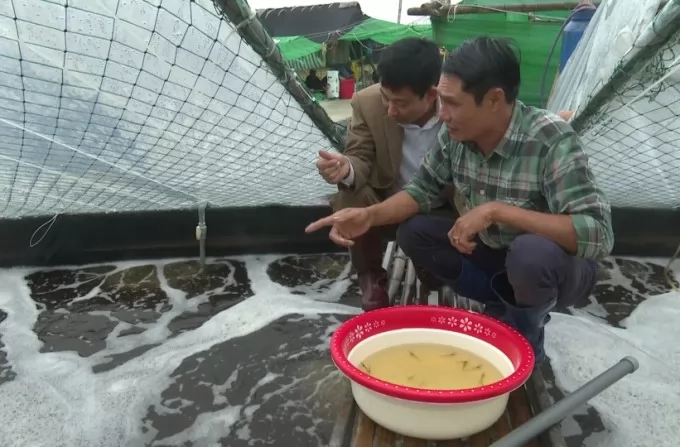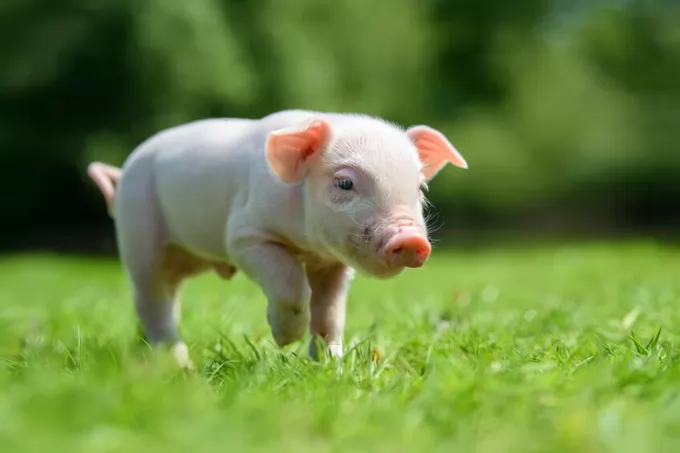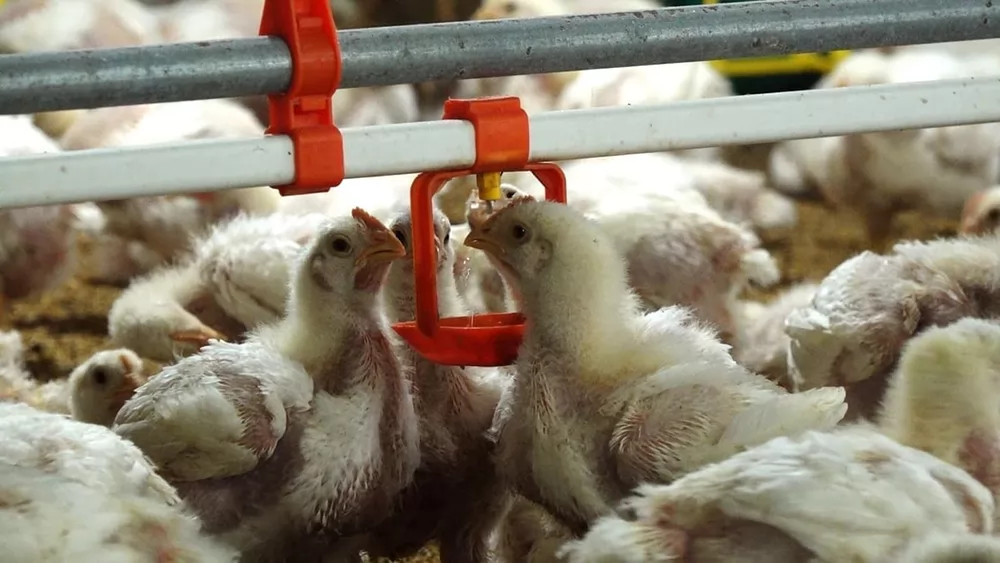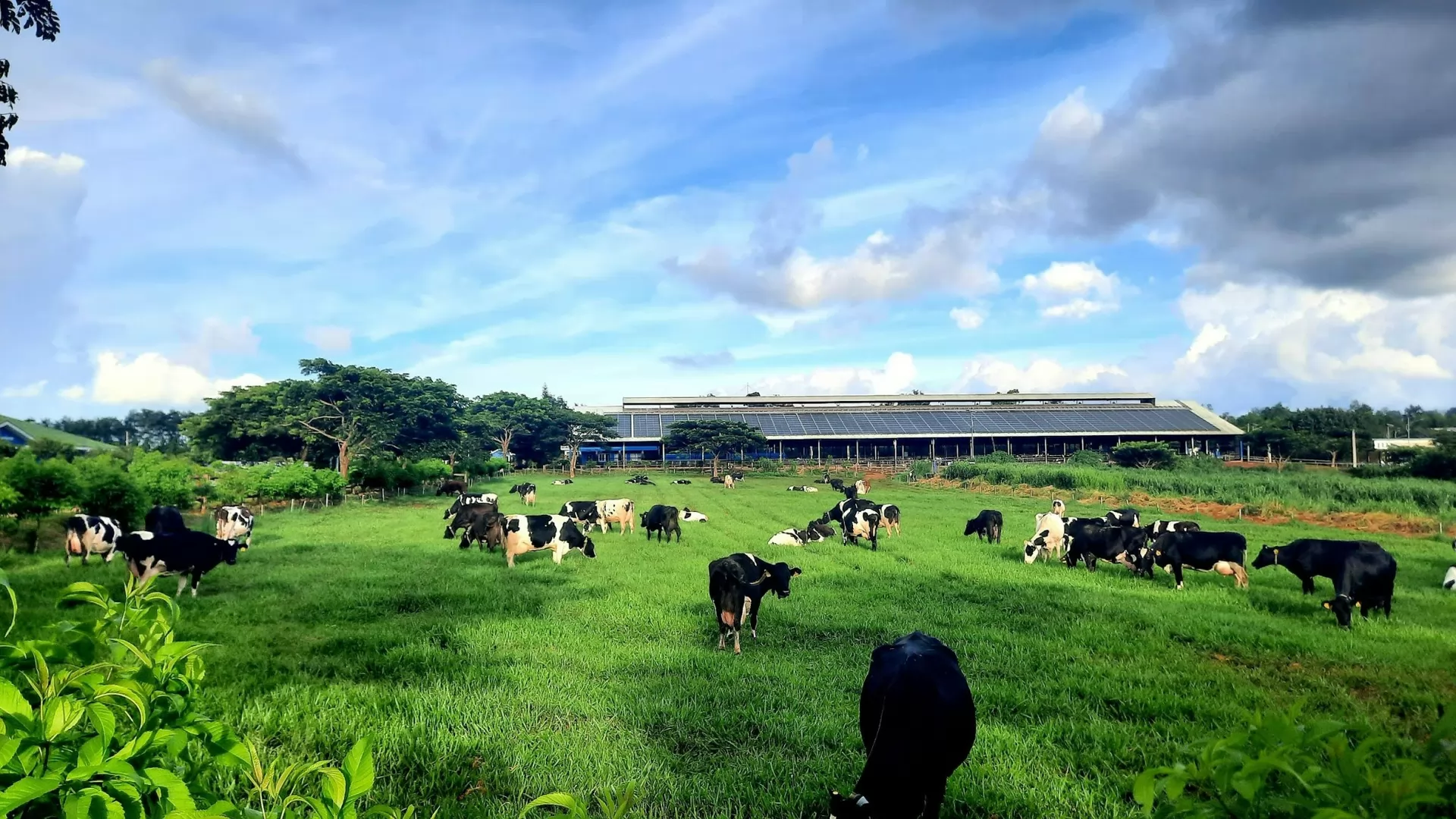Shrimp industry lost VND 10,000 billion due to reliance on antibiotics

Nam Thang, Tien Hai, Thai Binh communes are forming hi-tech shrimp farming areas that focuses on effective management of seed, antibiotics and environment. Photo: Bao Thang.
(VAN) Mr. Le Van Quang, General Director of Minh Phu Seafood Corporation, highlighted several problems that affect Vietnamese shrimp's competitiveness in the international market.
According to the Vietnam Association of Seafood Exporters and Producers (VASEP), Vietnam's shrimp exports in the first three months of 2023 reached USD 600 million, down 37%. Double-digit declines have been observed in many important markets throughout this period.
Namely, shrimp exports to the Japanese market reached USD 105 million, down 29% over the same period in 2022. Exports to the US market reached USD 104 million, down 46%. Exports to the EU market reached USD 89 million, down 44%. Exports to the Korean market reached USD 78 million, down 25%.
Regarding Vietnam's popular fishery products, the export value of whiteleg shrimp reached USD 451 million, down 38% over the same period in 2022. On the other hand, export value of black tiger shrimp reached 83 million USD, down 34%.
Ms. Kim Thu, VASEP's shrimp market expert, said that Vietnam's shrimp industry would face challenges stemming from inflation and the global economic recession in 2023. Additionally, Vietnamese shrimp has to face fierce competition with similar products from Ecuador and India in terms of price.
Regarding the skyrocketing production costs of Vietnamese shrimp, Mr. Le Van Quang, General Director of Minh Phu Seafood Corporation, said that managing antibiotics from the farming area to the processing facility is a major issue for domestic businesses. They must also bear the cost of antibiotic control in importing countries and these are deducted from the selling price.
In a recent report to the Prime Minister, Mr. Quang stated that the Vietnam's shrimp industry is losing approximately VND 10,000 billion due to farmers' overreliance on antibiotics in production.
"This has been a long-standing problem. It has greatly reduced sales opportunities because the clearance process is prolonged due to antibiotic sampling and testing. Businesses have to bear these losses, leading to a decrease in the competitiveness of Vietnamese shrimp," Mr. Quang said.

Mr. Le Van Quang, General Director of Minh Phu Seafood Corporation (standing) highlighting several issues to the Prime Minister with regards to the sustainable development of Vietnam's shrimp industry. Photo: BT.
The price of Vietnam's shrimp seed is approximately 30% higher than that of India and twice that of Ecuador. The competitiveness of Vietnamese shrimp has been challenged, especially in its main export market - the USA.
Mr. Le Van Quang advised the shrimp industry to strictly oppose the habit of using antibiotics. He suggested governmental units and state management agencies to thoroughly and regularly monitor antibiotic usage in farming areas. He said, "Strong actions and fines, such as discarding shrimp ponds, must be taken if antibiotics are found in the farming area. Otherwise we won't be able to break our habit of relying on antibiotics". Mr. Le Van Quang proposed that the Government strictly control and handle businesses that mix drugs, chemicals, or microbial products with antibiotics to sell to farmers.
A research team from Nha Trang University published an assessment of antibiotic resistance of pathogenic bacteria in shrimp farmed in Khanh Hoa in early 2023. Accordingly, the team recommends shrimp farms to carefully select antibiotics for disease treatment in shrimp to prevent the development of drug resistance. The research team also suggested managers to control the use of antibiotics in shrimp farms in order to protect the rights and health of domestic and international consumers.
According to M.Sc. Van Hong Cam, a lecturer from the research team, antibiotic resistance is increasingly common, severely affecting disease prevention and control as well as the environment. This issue also causes substantial damage to shrimp farmers and Vietnam's fisheries economy.

A high-tech shrimp farming model in Tien Hai, Thai Binh has helped control the use of antibiotics. Consequently, the output and selling price of shrimp increased considerably. Photo: Vo Viet.
Shrimp is a key export item of Vietnam's fisheries sector, accounting for 40 to 45% of the total export turnover. The shrimp industry achieved a record export value of 4.3 billion USD in 2022 and this momentum is expected to continue throughout 2023.
However, Vietnam's shrimp industry will face greater challenges. Firstly, Ecuador is growing rapidly in terms of shrimp production, reaching 1.5 million tons, twice as much as Vietnam's vannamei shrimp production.
Secondly, price of imported shrimp in the world market has been declining steadily since the second half of 2022. This downward trend is expected to continue as the global supply increases to approximately 6 million tons. On the other hand, raw shrimp price gradually rises in the domestic market.
Thirdly, import markets have high amount of inventories. Demand from markets such as the US, EU, and South Korea is forecast to not recover in the first half of 2023 due to economic crisis and political conflicts.
The Directorate of Fisheries under the Ministry of Agriculture and Rural Development recommends stakeholders to organize production in the direction of association and quality certification to ensure quality and reduce costs. Additionally, farmers must be guided on advanced, appropriate and effective techniques; shrimp farming and other stages in the shrimp production chain must be developed using high technology to reduce direct labor and limit the spread of diseases.
Regarding domestic businesses, the Directorate of Fisheries proposed to redirect the export of national-specific products such as shrimp - forest, shrimp - rice; the product structure must also be altered to meet the needs of individual market segment; prepare raw materials and production capacity to keep up with the recovery of shrimp demand in the global market.
Shrimp businesses are requesting the Government for permission to establish a public-private partnership with research institutes. This partnership is the basis for producing high-quality, disease-resistant shrimp seed that is accustomed to the local weather, climate and environment of each region in Vietnam.
Authors: Bao Thang - Vo Viet
Translated by Nguyen Hai Long
Maybe you are interested

Insects: A turnkey solution to feed sustainability
In December 2024, the Regulation on Deforestation-Free Products (EUDR) is anticipated to take effect, aiming to reduce deforestation and forest degradation.

Digital livestock farming in Thai Nguyen: From policy to practical action
Thai Nguyen is methodically implementing digital transformation in the livestock sector, laying the foundation for a modern, transparent, and sustainable agriculture.

The Central Highlands has 87 disease-free livestock facilities
Before 2020, the number of disease-free livestock facilities in the Central Highlands was very modest, but there is encouraging progress.





